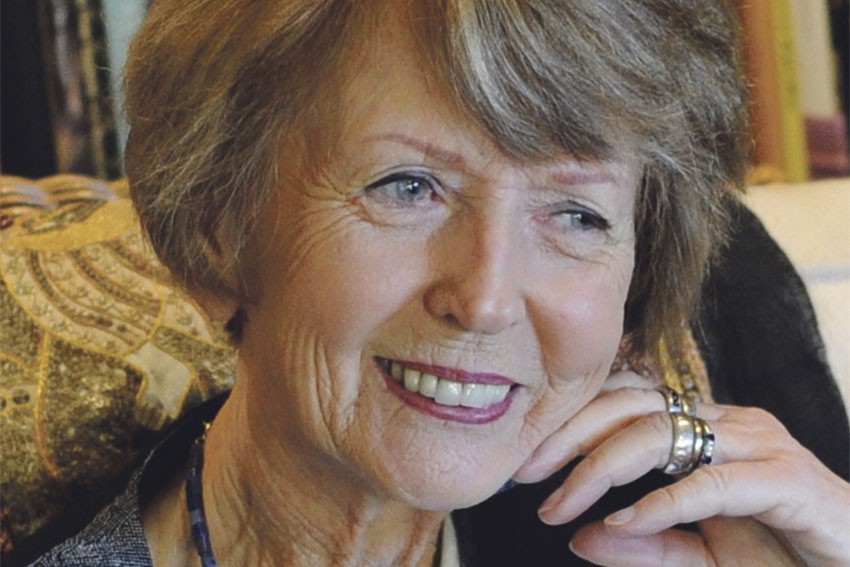Grimmer Tales

On the 200th anniversary of the printing of the Grimm Brothers’ legendary collection of dark tales, The Fairy Tales of the Brothers Grimm, Australian author Valerie Volk’s twisted adaptation on the classic stories takes the ‘grim’ factor to another level.
Her third book, Even Grimmer Tales: Not for the Faint-Hearted, takes much-loved children’s fairytales like Cinderella, Snow White, Sleeping Beauty and Little Red Riding Hood, and completely flips them on their head. “Just about everybody in the western world is familiar with the Grimm fairytales,” Volk offers. “Most us were even brought up on these stories. It continues with the next generation with new movies like Red Riding Hood, Snow White and The Huntsman and some of the Disney films too. I originally started out not intending to write this book at all – I was writing something more major – but I was really drawn to poetry and fairy stories while at the same time realising that writing about happy little fairies dashing around was really not my style. So it began when I took the Little Red Riding Hood story and thought, ‘Okay, let’s see what we can do with this’ – that turned into Red.” Whereas the Grimm original told of an innocent little girl stalked by a hungry wolf, Volk’s version transforms the tale into that of a homicidal paedophile haunting a dark forest. And while Volk admits that some may find the new twist horrifying and shocking, in reality, her stories aren’t that much more controversial or gory as half the shows we watch on our own television screens on a nightly basis. “There is nothing in this book that you wouldn’t see on shows like Criminal Minds, Bones and CSI,” Volk points out. “This is our daily viewing. It’s nothing that unusual or that perverted in comparison… It’s just that I’m putting them in the context of a Grimm tale. The original Grimm Brothers stories were actually even bloodier and more horrific than the ones that we’ve come to know over the years. When they first came out in 1812 they provoked a fair degree of horror because of some of the details they went into. The Brothers Grimm started out by putting together a collection of German folktales to collect tales of cultural heritage. They called them ‘Children’s and Household Stories’ – I don’t think they set out for them to be purely children’s stories by any means. Then later they realised children were reading them too and after that they watered the stories down quite a bit.” Whereas the Brothers Grimm watered down the sexual elements within their stories and kept a lot of the violence, Volk explains she took on the opposite approach… “I’ve taken the overt violence out but I’ve left the sex scenes in,” she laughs. “But it’s not even purely about that – the stories are essentially ironic and many of them are quite funny and witty. The reaction has been, ‘Gasp! Good heavens!’ followed by a recognition that there is a degree of humour in there too. What I’ve found interesting in my research of fairy tales in general is how they often mirrored the psychological states of a human being’s mind. If you think about it, so many fairy tales involve a dark forest as well as the relationship between parents and children. For example, in the first version of Snow White there wasn’t a ‘wicked stepmother’ – it was the girl’s own mother who was so jealous of her daughter’s beauty that she took her out to the forest to lose her. These reveal a lot about psychological states – for the children, it’s about the fear of abandonment.” An award-winning writer, Volk claims Even Grimmer Tales has taught her something new about her own craft after all these years… “I’ve realised that I really enjoy writing in the first person and actually becoming the character I’m writing about. I just think it has more impact when you write in verse format. I’ve been published for my poetry and short stories, I’ve been published in journals, I’ve won a number of awards for short stories along the way but, for some reason, when I turned to a longer, more major work, it seemed to become a verse novel rather than prose. I found a wonderful quote from a Czech writer who said, ‘The characters in my novels are my own unrealised possibilities, each one has crossed a border that I myself have circumvented’. Just because your characters have done horrific things, it doesn’t mean that you would ever dream of doing them, though you are still able to inhabit them.” Even Grimmer Tales: Not for the Faint-Hearted is published by Interactive Press